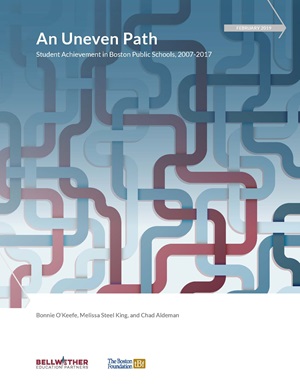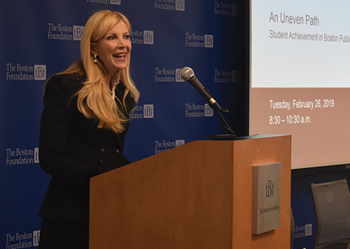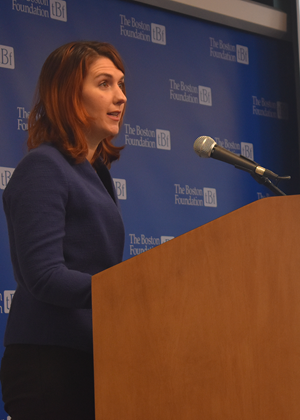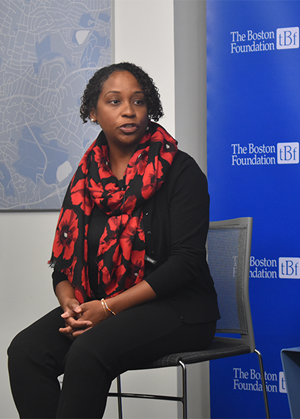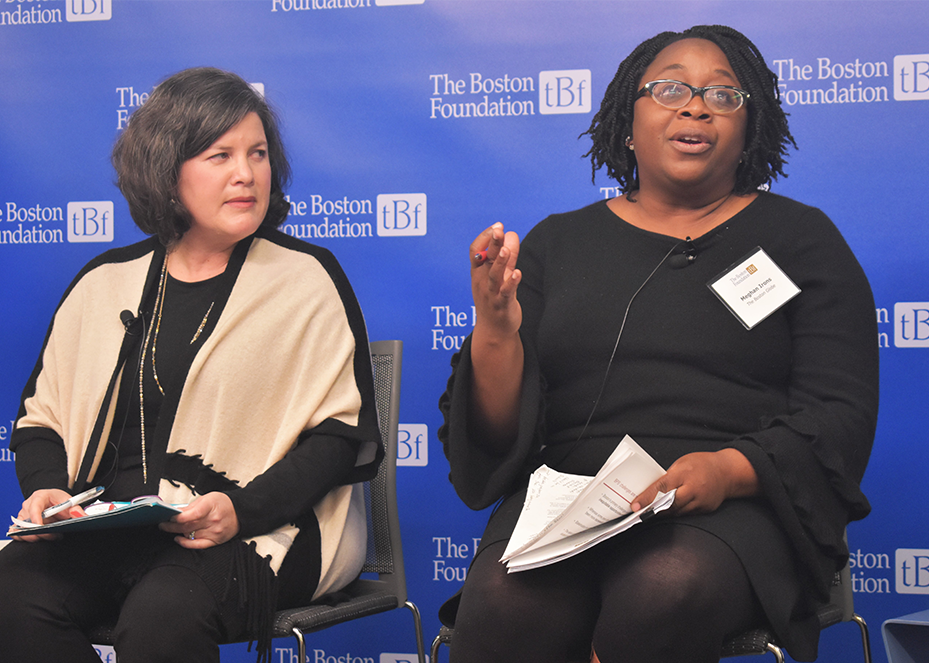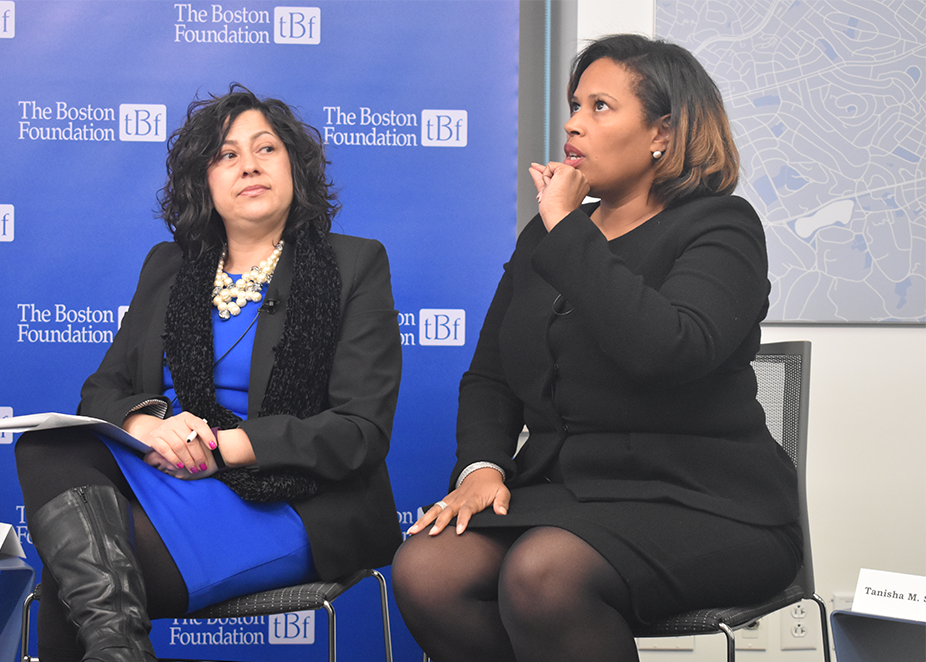An Uneven Path
Charting a Course for the Next Superintendent of the Boston Public Schools
February 26, 2019
The Edgerley Center for Civic Leadership at the Boston Foundation drew a large crowd of administrators, parents, teachers and other stakeholders on February 26th for the release of a new report intended to inform the dialogue about the current performance and future direction of the Boston Public Schools.
An Uneven Path: Student Achievement in Boston Public Schools 2007-2017 was commissioned by the Boston Foundation and written by Bonnie O'Keefe, Melissa Steel King and Chad Aldeman of Bellwether Education Partners.
Boston Foundation Board Chair Sandy Edgerley opened the forum by remarking on the timeliness of the report. “The Boston Public Schools is at a critical moment,” she said. “The system has had four interim or permanent superintendents over the last 10 years and soon we will have a fifth. This report draws attention to the challenges the new superintendent will face, but also some of the opportunities.”
Edgerley went on to introduce the current Interim Superintendent Laura Perille, noting that she oversees a system serving 55,000 students in 125 schools. While Perille’s post isn’t permanent, she said the BPS cannot afford to mark time when it comes to the challenges the system faces. “Boston is a leader in many ways when compared with other cities,” she reminded those gathered. “But there is no room for complacency when it comes to our biggest challenges and opportunities.” The challenges she touched on include closing the achievement gap for more students of color, removing barriers to exam schools and strengthening education at the high school level.
An author of the report, Bonnie O’Keefe, presented the findings, which are organized around four key questions: How does the current pace of improvement in BPS compare to the district’s past performance? Do BPS’ trends in student outcomes track above, below, or alongside those of other urban districts? What policies do local stakeholders view as having contributed to or hindered progress on student learning and equity? And based on recent trends and stakeholder input, how might local leaders rethink or revise their efforts?
The report compared Boston with two other cities of similar size: New Orleans and D.C. O’Keefe shared the good news that BPS overall has improved in the last 10 years, with higher test scores, high graduation rates and other metrics. The bad news is that all students are not served equally, especially black and Latino students, who are still struggling with large achievement gaps.
“Boston does well compared to many other urban school systems,” reported O’Keefe, “but deep, persistent inequities are also clear in this report’s results, especially for black, Hispanic and low-income students.”
She outlined the report’s recommendations to the next superintendent, which include articulating a clear theory of action and driving its implementation while the making tough choices when it comes to improving equitable outcomes and doubling down on areas of strength.
Elizabeth Pauley, the Boston Foundation’s Associate Vice President of Education, moderated an all-star panel, including: Andrea Campbell, President of the Boston City Council; Amanda Fernandez, Founder and CEO of Latinos for Education; Meghan Irons, a reporter for The Boston Globe; Alexandra Oliver-Dávila, Executive Director of Sociedad Latina, and Tanisha M. Sullivan, President of the NAACP Boston Branch.
Andrea Campbell, who said that she is a product of the BPS, expressed anger and disappointment over the bad news in the report. “But I loved the fact that it called out the need for ‘political will’ because that’s what we’ll need to make the tough decisions going forward,” she added.
Panelist Meghan Irons (another BPS grad) was one of the authors of the Boston Globe’s moving series on BPS valedictorians. As a result of her research over the last year, she wasn’t surprised by the challenges outlined in the report, but she expressed deep concern about the lack of a unified vision and communication among stakeholders. “As a reporter, I’ve seen that everyone is passionate about wanting to improve our schools, but we need to get everyone on the same page around at least a few issues that everyone can agree on.”
All of the panelists called for more engagement on the part of the broader community, an issue that was first raised by Alex Oliver-Dávila. “The Boston Public Schools can’t do this alone,” she said. “We need the business community, colleges and everyone to own this issue.”
As the discussion progressed, panelists touched on the deeper issues that have an impact on any dialogue about changing the status quo. “If you don’t understand the past and the history of racism, you can’t really understand the struggles we’re discussing,” said Campbell. Sullivan agreed, adding: “Our system is failing brown and black students. We need to stop playing around the edges and acknowledge that.”
Another theme lifted up by the panel was the importance of inclusiveness when it comes to the any conversations about the future of the BPS. “Any vision needs to be informed by parents and community members,” explained Campbell. Irons added that everyone in the room needs to “build bridges” to parents and other community members. “Ultimately,” she added, “we’re all in this together.”

